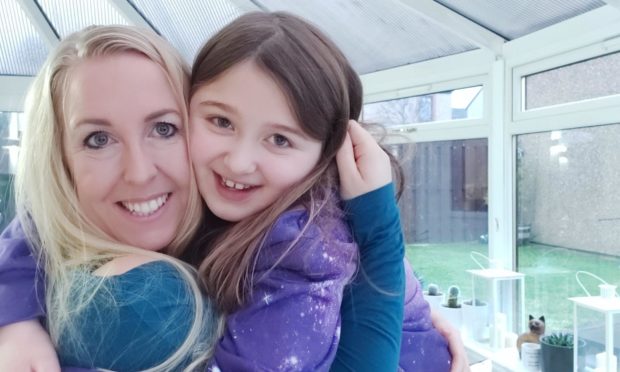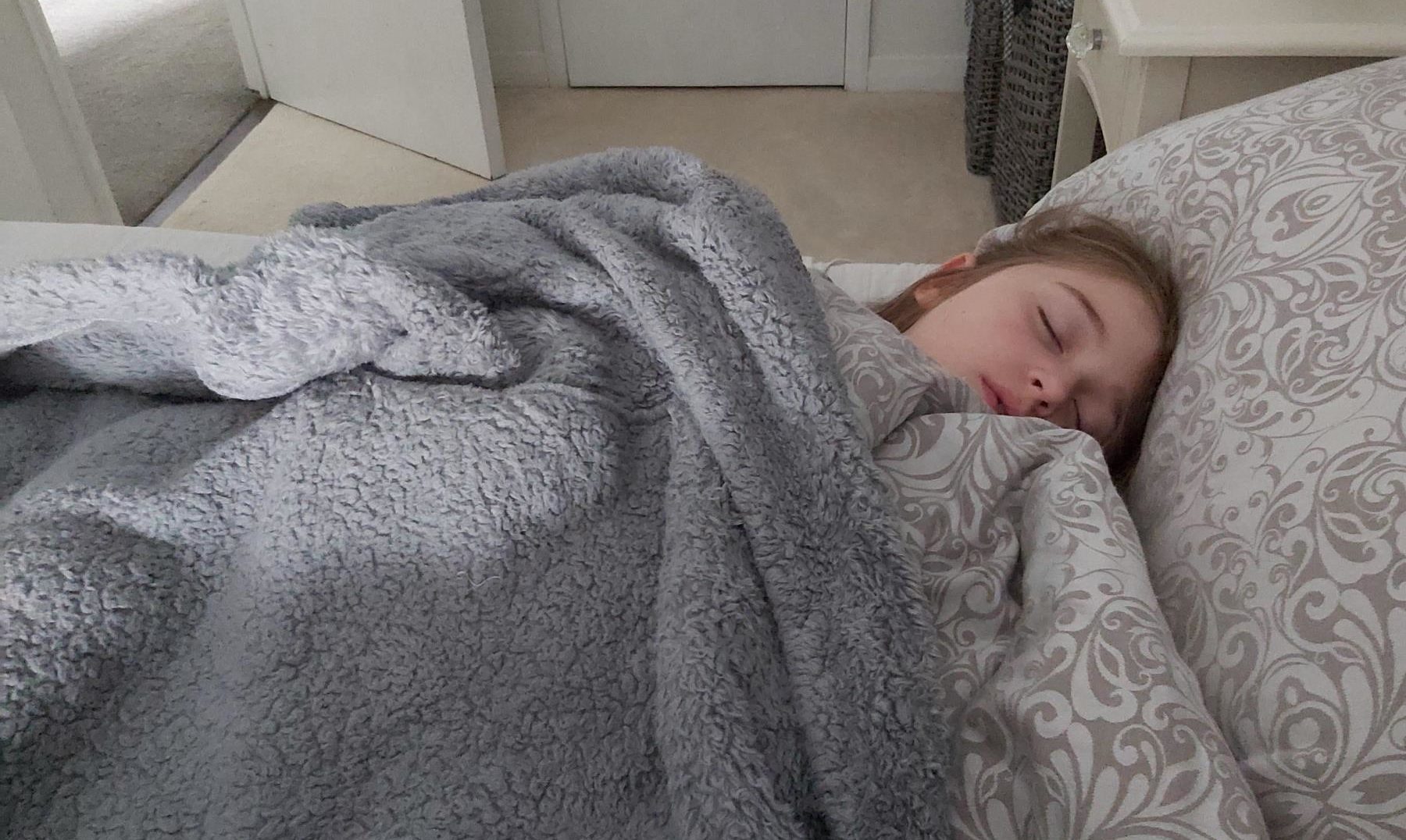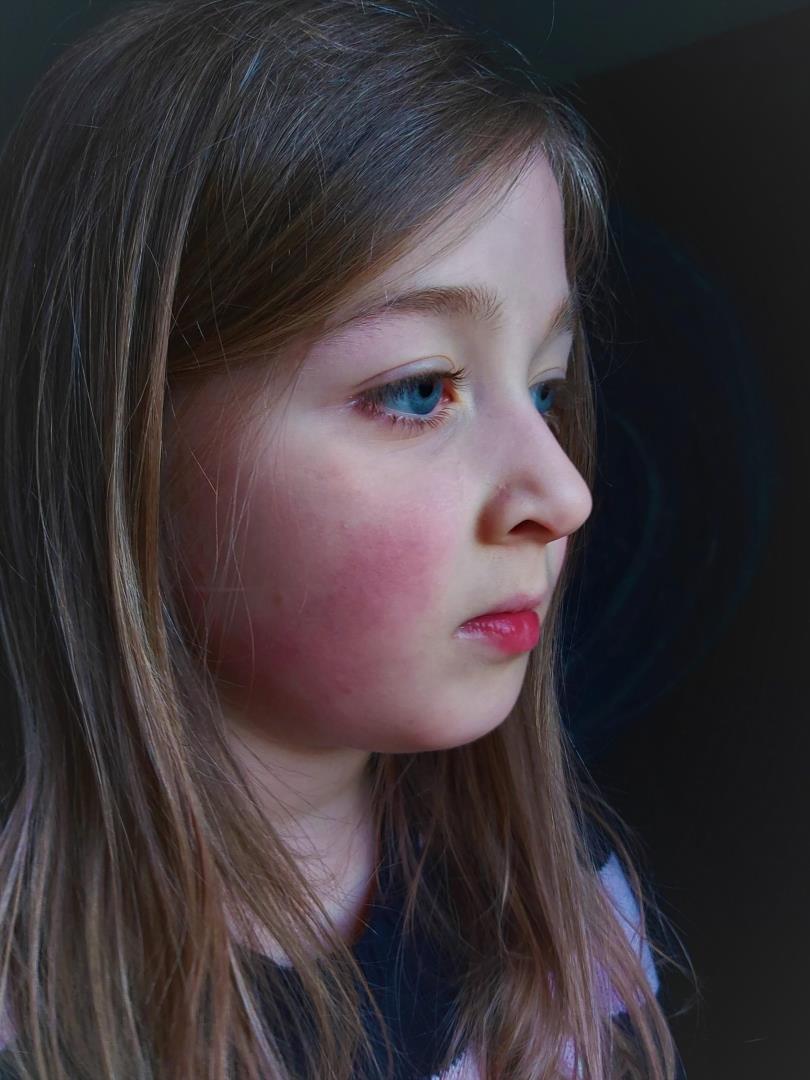Aberdeenshire mum Helen Goss felt a sense of relief when her family appeared to have “got off lightly” after coming down with Covid last April.
But in the weeks after, as they returned to their normal routines, severe symptoms soon re-emerged to take their toll on her eight-year-old daughter, Anna.
The Westhill youngster has been too sick to go back to school and has developed several other conditions during her exhausting coronavirus battle.
Dealing with extreme fatigue, dizziness and nausea, it is thought Anna may be suffering from a severe post-viral illness.
Ms Goss has now joined calls for dedicated long Covid clinics to be set up in Scotland to help those still facing the effects of coronavirus weeks and, in Anna’s case months, after first contracting the illness.
Explainer: What is long Covid? What are the symptoms?
She said: “I was laid up in bed trying to breathe and coughing and was pretty much asleep for a week.
“My partner and Anna didn’t get anything significant and seemed to be OK.
“It was really unpleasant for me but after we’d had it I thought we’d got off quite lightly – it was almost a relief we’d all come through it.
“But about four weeks after that Anna, out of nowhere, spiked with an insanely high temperature and took herself to bed.
“It wasn’t like her, or really any seven-year-old to do that. Sleeping is boring for her.”
Symptoms began with fever
Anna was running a fever of 40C, which even the medicine cupboard staple of Calpol could not touch.
At this point there were concerns ibuprofen could make symptoms worse – claims which were later disproved – but Ms Goss said she was trying “everything” to make her daughter better.
“After about five days I was basically holding a bedside vigil as her temperature was still so high,” she said.
“She was so weak and floppy and she was really sensitive to light, so she had to stay in the dark.
“She couldn’t even watch her tablet – and usually you can’t take it away from her.”
In the days which followed, Anna developed an angry rash on her arms and thighs and was struggling to eat and drink.
Ms Goss rang NHS24 and was connected with a doctor at the Aberdeen Royal Infirmary Covid-19 hub, who began triaging the patient over the phone.
She said: “They were asking questions about her hands and feet and her tongue.
“They wanted us to do some tests and asked if she could get out of bed and walk to the toilet, but she couldn’t.
“She was stumbling and fell into the radiator. She was very unsteady on her feet.”
Further diagnosis
Anna’s fever eventually began to drop and her rash faded – but did not disappear completely.
Ms Goss said the doctor’s questions that evening matched the symptoms of multisystem inflammatory syndrome in children (Mis-C) – a new, rare condition thought to be linked to Covid.
It causes the inflammation of blood vessels in a similar manner to Kawasaki disease and toxic shock syndrome.
Anna has since been prescribed three different treatments for her illness and visited the hospital for tests twice, but with little success so far.
She has also been diagnosed with a “mild” thyroid problem and an iron deficiency – neither of which she had issues with pre-Covid.
Blood tests showed Anna had coronavirus antibodies in her system in August, but these disappeared when she had another check-up in November.
Her mum says the condition is “destroying” her life – but the family are determined to simply take things one day at a time.
Anna ‘looked like a zombie’
While Anna did try going back to school when term restarted in August, it proved too much for her with her current health conditions.
The eight-year-old is currently enrolled in e-Sgoil, a remote schools scheme set up for children on the Western Isles who cannot always attend the classroom in person.
Ms Goss said: “She wasn’t managing, she was so tired.
“We tried back in August and her teacher said she looked like a zombie.
“She had put her head on her desk like she was about to take a nap.
“And she’s just not like that. She’s very conscientious and would never break a rule in school.
“But right now e-Sgoil is working and she’s doing really well and thriving with it.”
“She’s not seen her friends or been able to go and play.
Ms Goss added: “She is missing the social aspect of it all though and I worry she’ll struggle when she goes back to school because the others had time together from August to Christmas and she hasn’t been able to get involved.
“She’s struggling every single day with extreme fatigue, headaches and nausea and still enduring things like dizziness and light sensitivity.
“She’s not seen her friends or been able to go and play.
“Anna is so exhausted she can barely do any exercise. It is horrible.”
Ms Goss has found support from other parents online, including a Facebook community of around 700 families dealing with the impact of Mis-C, and the organisation Long Covid Kids.
“Everyone thinks about the adults with long Covid and forget kids can get it too,” she said.
“For lots of these families, it has come out of the blue.”
Long Covid clinics call
She has called for specialist long Covid clinics to help rehabilitate people with the condition, as several dozen have already been established in England.
But the Scottish Government said care for this is already being delivered and it is funding studies to “better inform” treatment going forward.
Ms Goss added: “If we could get something like this in Scotland it would be huge.
“At the moment the GPs and hospitals are trying their best but they’re really busy.
“They don’t necessarily have the time or resources to spend on big investigations into things like this.
“If we had dedicated clinics, it would help so many people.”
The Health Secretary has been asked to provide more support to those suffering the effects of long Covid.
Echoing the call from Ms Goss, West Aberdeenshire and Kincardine MP Andrew Bowie has asked Jeane Freeman what more can be done.
He wrote to her, highlighting the “devastating” impact the condition is having on people’s lives, including eight-year-old Anna and a 40-year-old man.
“He informs me that he still suffers with shortness of breath, fatigue and lack of energy resulting in feelings of anxiety and depression,” Mr Bowie said.
“He believes there is a lack of consideration shown in Scotland for those suffering with long Covid and hopes that in the near future, the lasting health impacts of the disease will be taken more seriously.”
The Scottish Government says primary and secondary care teams, as well as community-based rehab services, are already providing long Covid treatments.
A spokesman added: “The Chief Scientist Office has funded nine extensive research projects on the long-term effects of Covid-19 through £2.5 million of funding, in addition to the £5 million we recently awarded to 15 Scottish research institutions to better understand the effects of infection and inform treatment and management of the virus.
“We are working closely with Chest Heart And Stroke Scotland to explore how partnership working between third sector services and our NHS can deliver person centred care for people experiencing symptoms of long Covid.”


